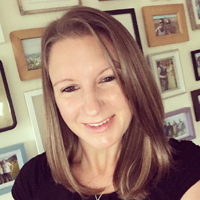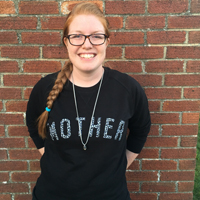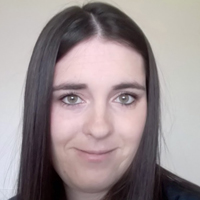Sam from Storms and Rainbows writes about how social media can help bereaved parents
October 2016
Pregnancy loss is not uncommon. It happens every day to around 700 families, yet there is still a taboo and silence around it.
The women and men who experience miscarriage, stillbirth or baby loss often feel lonely. Many of their close friends and family can barely begin to empathise with what they are going through, and can struggle to provide support in the right way.
I am extremely lucky. I have some very supportive family and friends around me who have been there to talk to and cry with these last 10 months. Not everyone has this, and can feel isolated with their grief.
It can be difficult to know where to turn to for support when no-one talks about miscarriage and stillbirth, or all you hear is "it wasn't meant to be" or "it's just one of those things".
When you lose a baby, you suddenly find yourself in a club that nobody ever wants to be in.
Like any normal mother, my son defines me. I am a different person because of my him.
Guy has made me weaker and stronger in different aspects of daily life. He has given me strength I never knew I had to carry on and fight for his future siblings. He has given me a voice to stand up for his memory and try to break the silence of pregnancy loss. And he has given me new friends. Friends I wish I never had to meet, but I am so grateful to have met them.
Together, Jess, Aimee, Amy and I would like share our experiences of finding support through social media.
Social media as a support network?
Facebook is great for getting a message out into the world quickly to a mass audience.
After Guy was (still)born, we posted our heartbreaking news on Facebook. We were overwhelmed with messages from people telling us their own pregnancy loss stories.
It hit home how many friends, old and new, had been through similar experiences, and we never knew about it. It highlighted that the taboo is very much present in current society.
I quickly realised this was going to be a journey, but not one I wanted to keep quiet and be ashamed of.
Worried people would soon get bored of my 'grief' posts, I became very selective about what I shared through Facebook. I didn't want people to shy away from talking to me for fear they may upset me. So I only posted things I thought would help people understand that I am ok to talk about Guy.
Instead, I decided to share my grief and 'life after loss' journey through my Instagram account. Instagram felt like a safe place because generally your posts are only seen by the people who follow you and anyone who searches the same hashtags you have on your post.
For example: #stillbirth #miscarriage #pregnancyloss. People have to go looking for things they want to see. It's not like Facebook where random videos and photos are spamming up your feed.
I generally use hashtags on my Instagram posts, but I rarely used to search them to see what other people were posting. Until I found myself using #stillbirth, #pregnancyloss. I prepared myself for a gruesome and upsetting results page of dead babies.
Instead I found a tasteful photos of Mums and dads with their precious babies who appeared to be sleeping, inspiration quotes, blog posts, pre-loss pregnancy photos and more.
Each one leading me to new, inspiring accounts to follow. I found people who seemed to be able to put all my thoughts and feelings into words. There was a mutual understanding and real empathy. The more I posted, the more new followers I gained myself.
People were leaving nice, supportive comments and sending messages sharing their stories. I began to notice some of the same people interacting with my posts. They understood exactly how I was feeling, even when I thought my captions were a load of waffle. This lead to conversations, and learning about each others babies. In turn, this lead to new friendships.
I did find a couple of unofficial support groups on Facebook. Other bereaved parents had grouped together to run these pages, where people could share their pictures, stories and air their frustrations in private.
Compared to the love and support I felt from my new community on Instagram, I quickly discovered these groups weren't for me. Whilst for some they may be the only place they have to talk about their babies, they left me feeling depressed and uninspired.
Over the summer, a few of the ladies I had befriended were attending a baby loss memorial service. So we planned to meet up beforehand. It was so nice to finally meet the people who had supported me from afar for months.
With fellow bereaved parents, there is a special bond, your hearts are instantly connected. It felt as though we had known each other for years.
I never intentionally set out to meet new people. When I decided to be so open about losing Guy, I just needed an outlet, somewhere to offload.
I'm so glad I did this. It has brought some beautiful, inspiring people into my life.
They have taught me to accept the bad days for what they are, and that it's OK and normal to feel different from one day to the next.
They have shown me how to grieve in a healthy way by creating and sharing memories for our babies.
Every now and then one of them will send me a picture of Guy's name written in the sand of beach on their holiday or on a stone. It warms my heart to know they think of him and he is loved by people who never got to meet him.
I would definitely recommend that anyone who has had a pregnancy loss use social media to look for support. You never know what pages you might find, or people you might meet that could make this journey a little easier.
Aimee

Like myself, Aimee found comfort and support through sharing her story and meeting people on Instagram...
"Our first experience of meeting others with stillbirths was through a local support group, or rather the dead baby club as we began to call it through the dark humour we had developed since losing Phoebe. It's the club no one wants to join and those that find themselves wonder what they did so wrong to end up there. It was fine, but there was no instant click with anyone for support and there were very few men that my husband could talk to for the mans perspective.
So I turned to Instagram. I have loved insta since I got my first iPhone 2 years ago. Pictures tell a thousand words and my friend taught me hashtags which opened up a new world of like minded people. I remember the first time I searched on #stillbirth , it was scary, I didn't know what I might find, but I found love and loss and new friends on this journey. Friends I could relate to, friends I felt a connection with straight away. It started with a like, then a follow, then a comment, and then a direct message, many emails, and by chance a meeting. Like internet dating but for stillbirth families!
Never in my wildest dreams did I think I would meet someone who lost their baby on the same day as me. And a baby girl. And full term just like me. I'd often wondered in those early days about women from the same death day as us and how they might be coping but to actually meet one of them blew my mind. I met Emma through a comment on one of Jess's posts on Instagram. We messaged and then one day decided to meet in London. It was a bright sunny day and I will never forget that instant friendship. I'd never met her before we had never spoken but we stood in Waterloo station and hugged and cried together as we met for the first time. It felt like we'd know each other for years. This was in May just four and a half months after we lost our babies.
Insta led me to some of the most amazing and inspirational people I know. It's made me cry, laugh, and hope. It's made me believe that despite our sadness and grief journeys we were all meant to meet, that by some strange and horrendous coincidence these people were brought together to help each other through this new normal.
I can't thank Instagram and hashtags enough for helping me in this journey so far. It would have been a lonely place if I hadn't found the courage and typed in #stillbirth in the search field that day."
Jess

Jess explains how social media has given her the platform to create a legacy for her son, Leo, and share it with a wider audience.
"Very soon after Leo died, and was born, I picked up my iPad and just wrote down everything that was in my head – all my questions, my worries, and general fast paced thoughts that go through your head as you are preparing to bury your first child. It was such a help, and it allowed me to make sense of what I was thinking, and also release some of the pressure in my head. It quickly became like a pain killer – if I started to fall apart, I could write and focus on understanding what was making me so sad at that exact moment.
Around the same time, I had read a few blogs online. I think I found them mostly when researching how you go about planning a babies funeral, so I began reading a few of those. It was like finding this little corner of the internet that you didn’t know anything about, and it really was about feeling normal and starting to understand what was happening to us, through someone else’s journey.
At that time, one of the biggest fears was planning Leo’s funeral. I just could not visualise it at all. I didn’t know what it could look like, or even what I wanted it to look like. Finding a few blogs that gave me that understanding was so helpful, and enabled me to create a ‘good’ funeral for our son. It was because of that, that I decided I wanted to share our journey. If it helped just one other person, then it would be worthwhile.
Slowly, I started blogging in private online and not sharing to anyone. Then I made it public but didn’t tell anyone other than my wife. Then, slowly I found communities on Twitter and Instagram – and began a blogging account there. It was small steps each time I allowed the blog to become a little bit more public, but with each step I have seen the benefit it has to raising awareness, starting conversations and helping others. Now my blog is in the public domain, with our friends and families also able to read it. This has been so helpful for them also, to learn about and understand the journey that we are on.
In the very very early days of grief, I discovered a few unofficial support groups on Facebook, and joined them. Whilst it was helpful initially to realise that we were not alone in this, after a few days, I found it wasn’t for me. I needed to find a more hopeful and progressive environment to gain support. That is what I found on Instagram. Through micro-blogging on Instagram and sharing my blog, I have found others in very similar positions with very different journeys. We have guided each other through the turbulent grief journey, and grown to love each others children. By having a space where I can share my son and our love for him, it allows me to be reassured that he will not be forgotten. Having now met, in person, some of the people who have supported us on our journey, I know that I will forever be grateful for others also taking that scary step of sharing online.
You often doubt that people want to hear about it – social media has become a place of sharing achievements and joy, full of positive stories. No one really shares the struggle. Every time I doubt whether this is the right thing to do, I’ll get a message from someone who has followed our journey – a message of thanks, because it has helped them in theirs. There are so many people out there walking this path, and whilst we wish no-one else had to understand it, they are there and they are some of the most supportive people we have connected to in the past 8 months.
Through Twitter, I have also connected with the charities and organisations that are working so hard to improve the stillbirth rate in the UK, and internationally, and its inspiring and hopeful to hear about all the different events and initiatives that are taking place. Without engaging online, we wouldn’t have discovered the various initiatives that are taking place, or the support organisations that are available to us. For those that can, sharing something online about baby loss goes along way to breaking the silence and the taboos that society has about it. It also enables some astonishing fundraising and pregnancy health awareness messages to be spread. All of these things go a long way to improving or saving peoples lifes, every day. The internet can be scary, but it is so powerful at the same time – you never know who might be reading and needing to hear your words."
Amy

After trying support groups, Amy found the support she needed through Instagram.
"Since Jason died I’ve looked for many ways to help me with my grief as our local hospital offered no real support or insight into what was to follow other than a brief meeting with a bereavement worker who gave us our memory box and left us to learn how to grieve.
Instagram in particular helped me find others who knew how I felt and didn’t just think they know. I spent the first few months listening to people tell me how strong I was being and how they couldn’t imagine how I was coping and why should they? My new friends on Instagram knew exactly what my thoughts were and never once judged my way of grieving for my son.
Now these friendships are so important to me. They aren’t afraid to talk about Jason or say his name like others do. I feel a connection to these inspirational women because they know. They have supported me in my grief but also shared in my joy and still they understand that our babies will never be forgotten."
Read more from Sam at her blog, Storms and Rainbows.
Read more from Jess at her blog, The Legacy of Leo.
Read more 7 voices for 7 days
-
Read more about 'What to do if you want to avoid Baby Loss Awareness Week '
What to do if you want to avoid Baby Loss Awareness Week
-
Read more about 'Baby loss taboo stops working parents getting the support they need '
Baby loss taboo stops working parents getting the support they need
-
Read more about 'What to say to someone who has lost their baby '
What to say to someone who has lost their baby
-
Read more about 'Lucy May Walker’s new song expresses the complex emotions of baby loss '
Lucy May Walker’s new song expresses the complex emotions of baby loss
Support after stillbirth
-
Read more about 'Stillbirth and premature birth rates not affected by Covid-19 '
Stillbirth and premature birth rates not affected by Covid-19
-
Read more about 'We will forever be thankful to Tommy’s for their research and medical care '
We will forever be thankful to Tommy’s for their research and medical care
-
Read more about 'Building awareness about baby loss '
Building awareness about baby loss
